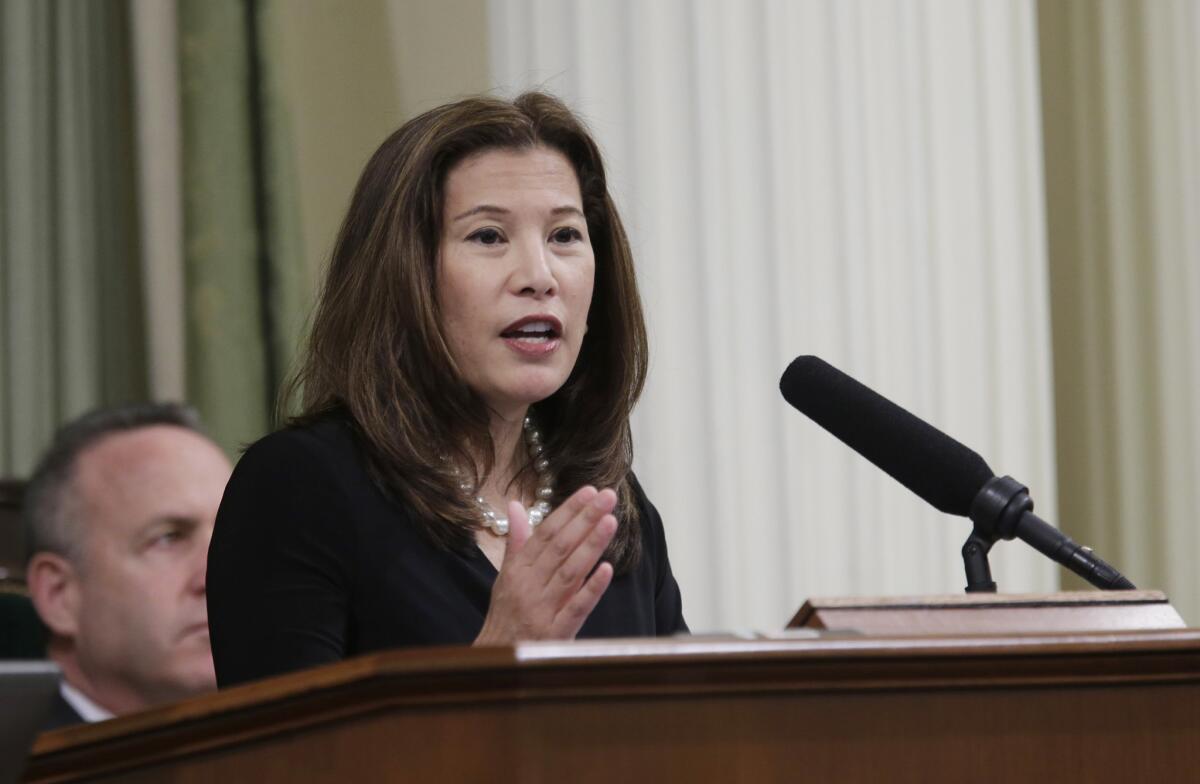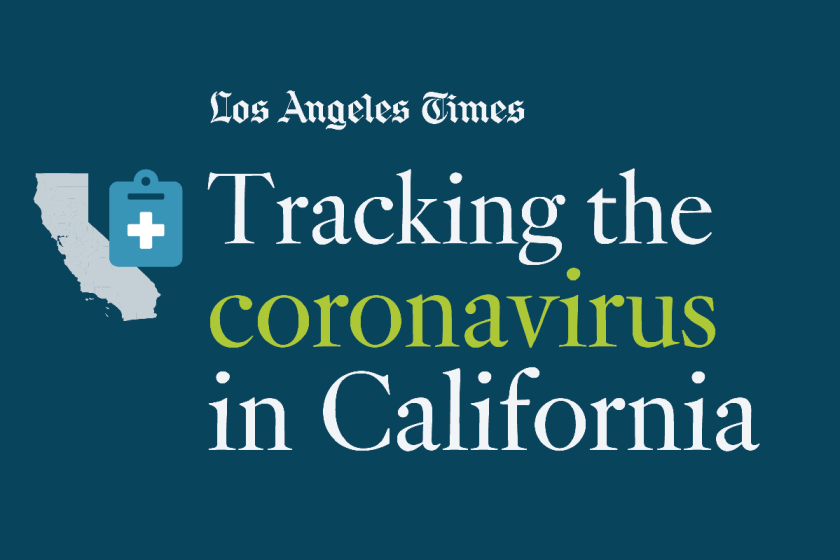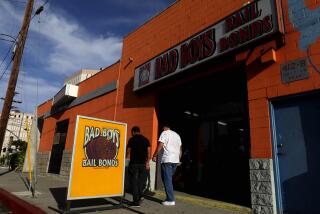In uncharted territory, California court leaders OK urgent new rules for coronavirus

- Share via
SAN FRANCISCO — California judicial leaders approved 11 new emergency rules Monday to keep essential court services running and still try to protect people from the coronavirus.
During a meeting held by telephone, the Judicial Council, the policy-making arm of the state court system, directed judges to set bail at zero in misdemeanor and low-level felony cases and to postpone proceedings that could result in evictions or foreclosures.
The most contentious item at the meeting involved the rights of criminal defendants to appear in person for pretrial proceedings, where defendants learn of their charges and enter pleas and prosecutors must show there is enough evidence to hold them over for trial.
Public defenders say their clients have the right to visibly confront witnesses against them and need to confer with their lawyers during preliminary hearings. Prosecutors want the hearings held remotely to avoid having sheriff departments bus inmates from jail and potentially expose others.
Sen. Hannah-Beth Jackson (D-Santa Barbara), a member of the council, suggested the council should revoke the defendant’s right to be present in person. She said she was “hearing more and more” about inmates and jail personnel being diagnosed with the coronavirus.
Chief Justice Tani Cantil-Sakauye, who heads the council, defended the proposal. She said that courtrooms were now so empty that hearings could be held with appropriate distancing.
“I don’t see the need to universally override the defendants’ consent for these hearings at this time,” she said, adding “it could change.”
Los Angeles County Superior Court Judge Eric C. Taylor, another council member, said he strongly supported remote hearings but also approved of the rule.
“I hesitate to suspend the constitutional rights of any person to appear in court except when there is a specific, compelling reason, with data and no alternative,” he said. If a judge finds the hearing can’t be held safely with the defendant present, the hearing can be rescheduled to a later date, he said.
The latest maps and charts on the spread of COVID-19 in California.
The rule adopted also allows judges for “good cause” to require the personal appearance of witnesses, which might be necessary in cases in which someone’s credibility is at issue.
Orange County Dist. Atty. Todd Spitzer, who monitored the meeting by phone, said the rule will allow judges to delay hearings for “good cause,” which he said could include the presence of the disease in the jails.
“The good news is that it gives judges the ability to make judgment calls about where they can find good cause to continue the case if the defendant does not agree to participate remotely,” he said.
Oscar Bobrow, head of the state’s public defenders association, said his group was pleased that the council adopted a statewide bail schedule for minor crimes to reduce the jail population.
But he said they were disappointed that defendants mostly would have access only to video of witnesses at preliminary hearings.
“We believe that the good cause requirement will impose an additional and improper hurdle on the defendant to establish something other than what the Constitution already requires, to be able to see and hear the witnesses live,” Bobrow said.
“The Supreme Court has already weighed in on the insufficiency of ``’video confrontation’ in many cases and has held that this is a denial of due process and confrontation under the 5th and 6th Amendments,” he said.
He added that public defenders ```”continued to be dismayed” that the Judicial Council is not requiring courts to hold arraignments within 48 hours of arrest.
Other temporary rule changes approved Monday included one that extended domestic violence restraining and other protective orders until after the health crisis ends, another that allows depositions to be taken remotely in civil matters, and an extension of legal deadlines for those cases.
The Judicial Council has 21 voting members, most of them judges appointed by the chief justice but also two members of the Legislature and four members of the bar.
Several council members noted Monday that fast pace of new emergency court orders was highly unusual. Normally, court rule changes require months or even years to consider and finalize, they said.
They also stressed that rules could change again as the epidemic unfolds. Otherwise, most will remain in effect until 90 days after Gov. Gavin Newsom declares the emergency is over or until the Judicial Council revokes them.
Newsom gave the chief justice and the council unprecedented powers to change rules — even temporarily revoke state laws — because of the health crisis.
“We are at this point truly with no guidance in history, law or precedent,” Cantil-Sakauye told the council. “To say that there is no playbook is a gross understatement of the situation.”
More to Read
Sign up for Essential California
The most important California stories and recommendations in your inbox every morning.
You may occasionally receive promotional content from the Los Angeles Times.












